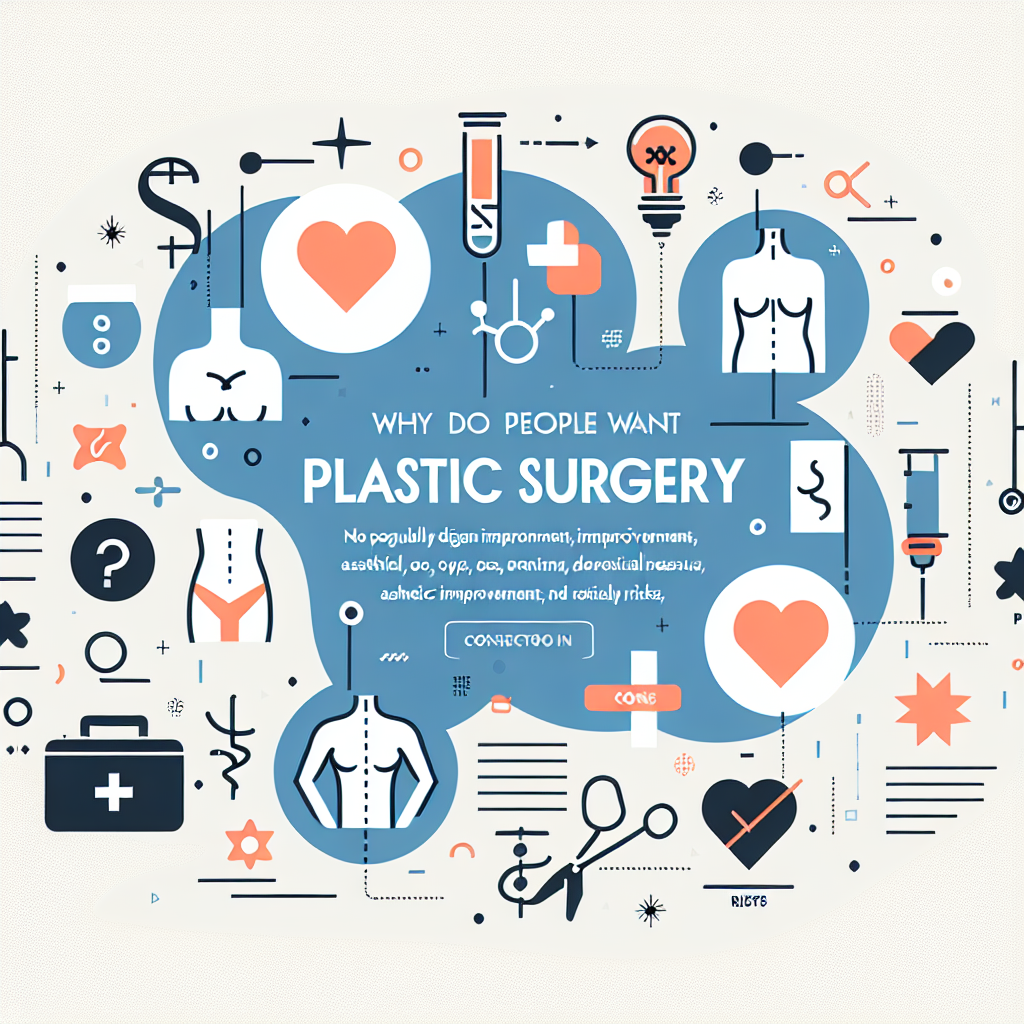Plastic surgery sparks curiosity and controversy because it sits at the intersection of health, self-image, and social pressure. Many readers ask why do people want plastic surgery, and the reasons range from reconstructive needs after injury to elective changes motivated by aesthetics or confidence. Understanding the full picture helps anyone considering a procedure weigh benefits, risks, recovery time, and expected results.
Why do people have cosmetic surgery?
People pursue cosmetic procedures for a mix of personal and practical reasons. For some, surgeries like rhinoplasty, breast augmentation, or liposuction are a path to greater self-esteem and body satisfaction. For others, reconstructive operations after trauma, congenital differences, or cancer restoration are life-changing in functional and emotional ways. Cultural norms and media representation can also influence decisions, as can life events such as pregnancy or aging.
Common motivations and psychological factors
Motivation matters: when a patient seeks surgery to address a specific concern and has realistic expectations, outcomes tend to be more satisfying. Mental health screening and candid conversations with a board-certified surgeon are important. Consider these motivating categories:
- Reconstructive needs (injury, birth defects, cancer reconstruction)
- Cosmetic enhancement (appearance refinement, symmetry, anti-aging)
- Functional improvement (breathing issues corrected with septoplasty/rhinoplasty)
- Psychosocial reasons (confidence, career-related pressures, life transitions)
Pros: potential benefits people often cite
Physical and emotional improvements are commonly reported after successful procedures. Benefits can include better proportion and balance, fewer functional problems, and improved self-image. Many people note a boost in social confidence or comfort in clothing and appearance. When surgery addresses a medical issue—such as reconstructing a breast after mastectomy or correcting a deviated septum—the health advantages are clear and measurable.
Cons and risks to consider
No surgery is risk-free. Complications can include infection, scarring, anesthesia problems, or dissatisfaction with aesthetic results that sometimes require revision procedures. Financial cost and recovery time are significant factors; downtime may affect work and daily life. Emotional outcomes vary—some patients adapt quickly and happily, while others may need psychological support to process changes.
Special considerations for women and females
Why do females get plastic surgery and why do women get plastic surgery? Historically, women have sought cosmetic procedures at higher rates, influenced by beauty standards, motherhood-related body changes, and societal expectations. Both phrasing—why do females get plastic surgery and why do women have plastic surgery—reflects the same core issues: accessibility of procedures, targeted marketing, and reproductive life stages that prompt interest in body-contouring surgeries. It’s crucial for clinicians to discuss motivations openly, ensuring choices are autonomous and informed.
What results can you realistically expect?
Results depend on the procedure, individual anatomy, and surgeon skill. Scarring fades but rarely disappears; swelling and bruising are temporary for most surgeries. Long-term satisfaction is higher when goals are realistic and patients follow pre- and post-operative instructions. Recovery timelines vary widely—minor outpatient procedures may heal in days, while major operations can require weeks or months for full recovery. For a detailed example of the typical recovery timeline after a nose job, see this rhinoplasty recovery timeline: what to expect after nose surgery.
For more background on the history, techniques, and modern practice of plastic surgery, the Wikipedia entry on plastic surgery provides a thorough overview and references for further reading: history and overview of plastic surgery on Wikipedia.
Deciding whether to proceed
Before choosing an operation, research board qualifications, view before-and-after photos, and get multiple consultations. Consider non-surgical alternatives and ask about potential revision rates. Mental health stability and a clear, realistic set of expectations are as important as technical considerations.
- Ask: Is the goal health-related, functional, or primarily cosmetic?
- Verify: Is the surgeon board-certified and experienced in the specific procedure?
- Plan: Understand recovery time, costs, and possible need for follow-up surgery.
FAQ
Q: Will plastic surgery solve deep-seated self-esteem issues?
A: Surgery can improve confidence related to specific physical concerns, but it is not a substitute for therapy when self-esteem problems stem from broader psychological issues. A combined approach often works best.
Q: How long do results last?
A: Longevity depends on the procedure—some effects, like those from rhinoplasty or breast augmentation, can be long-lasting, while fillers and some skin treatments require maintenance. Lifestyle, aging, and genetics also affect how results evolve.
Q: Is it normal to wonder why do people have cosmetic surgery?
A: Yes. Asking why do people have cosmetic surgery or why do women have plastic surgery is part of making an informed, personal decision. Understanding motivations, risks, and realistic outcomes helps prospective patients choose responsibly.






